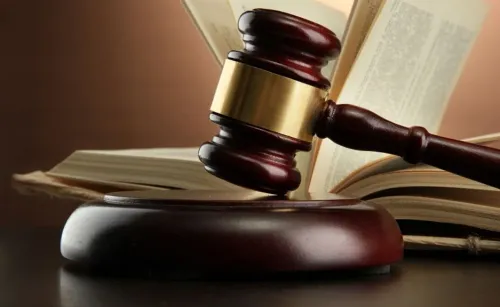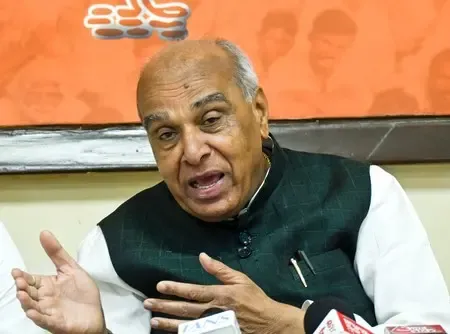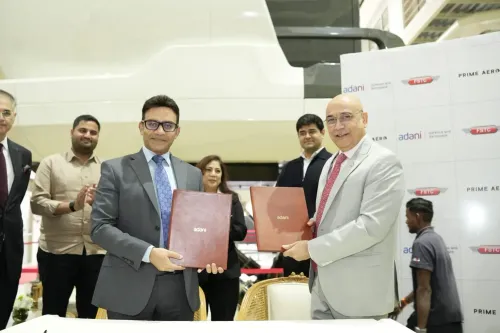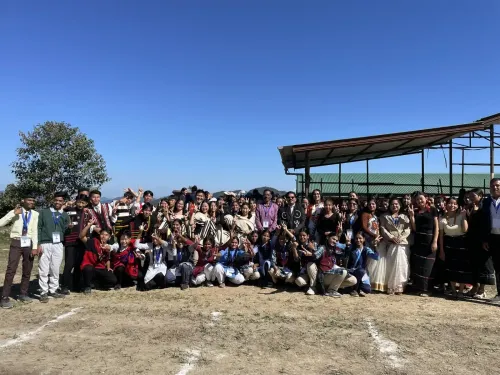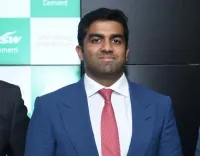How Are Meghalaya CM and NE Leaders Uniting for Identity Protection?
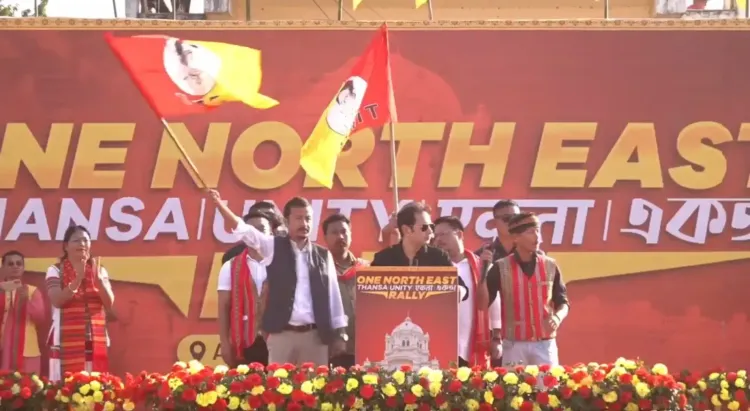
Synopsis
Key Takeaways
- Collective Unity: Emphasizing the importance of unity among Northeastern states.
- Protection of Rights: Advocating for the safeguarding of land and cultural rights.
- Political Significance: The potential impact on regional political dynamics.
- Indigenous Advocacy: Highlighting the need to amplify indigenous voices.
- Future Aspirations: Aiming for a collective future for the region.
Agartala, Nov 27 (NationPress) The Chief Minister of Meghalaya and leader of the National People’s Party (NPP), Conrad K. Sangma, along with various tribal leaders from the Northeastern states, emphasized the need for a united front termed ‘One North East’ to safeguard the land rights, traditions, languages, and cultures of the region's inhabitants.
Speaking at a rally under the banner of ‘One North East Thansa (Unity)' in Agartala, Sangma urged the people of the Northeast to unite in their efforts to protect the rights and cultures of the indigenous population.
During the rally, organized by the Tipra Motha Party (TMP), a coalition partner of the ruling BJP, Sangma stated that progress in the region can only be achieved through collective strength and solidarity.
“We must defend our land, traditions, languages, and cultures, and for this reason, we stand together with ‘One North East’,” the NPP leader proclaimed.
He remarked that the ancestors of the Northeast fought tirelessly for the region's growth and the well-being of its people, but internal divisions have now diminished their collective voice.
“We are fragmented into various communities, which has weakened our collective power. We must unite and progress together to meet our aspirations. Regardless of the challenges ahead, we must confront them unitedly,” Sangma asserted, while also acknowledging TMP leader Pradyot Bikram Manikya Debbarma for his relentless efforts on behalf of the indigenous population.
During the rally, Debbarma alleged that there are objections raised only when the TMP organizes public meetings in Agartala.
“No objections arise when the CPI (M) and Congress conduct rallies, but when TMP holds a public meeting, suddenly there are objections,” he remarked, indirectly referring to the BJP-led Tripura government.
As a former royal family member, Debbarma criticized national parties for undermining regional political forces in various states.
“National parties have either eradicated or weakened regional parties in states like Assam, Maharashtra, Odisha, and Punjab. The people in Delhi do not regard the Northeast population favorably,” he claimed. He reiterated the demand for ‘Tipraland’, stating, “One day we will undoubtedly achieve Tipraland. We must collectively strive with all regional parties to fulfill our demands and defend our rights.”
The TMP continues to advocate for “Greater Tipraland,” a separate state for tribal communities under Articles 2 and 3 of the Constitution, as well as for the timely conduct of the long-awaited Village Committee elections within the Tripura Tribal Areas Autonomous District Council (TTAADC) region and the deportation of illegal migrants.
Since 2021, the TMP has been at the helm of the 30-member politically significant TTAADC, which encompasses two-thirds of Tripura’s 10,491 sq km territory and is home to over 12.16 lakh individuals, approximately 84 percent of whom are tribal.
Alongside Sangma and Debbarma, numerous other notable tribal leaders from various Northeastern states addressed the rally, marking it as a pivotal political event in Tripura.
Prominent speakers included former Speaker of the Manipur Assembly and ex-Minister Hemochandra Singh, founder of the People’s Party from Assam’s Dima Hasao district Daniel Langthasa, NPP’s National Working President J. M. Sangma, former BJP national spokesperson and ex-Nagaland Minister Mmhonlumo Kikon, and founder President of the Indian Gorkha Janshakti Front Ajoy Edwards, alongside veteran leader from Manipur R. K. Meghen.
On November 4, the NPP, TMP, and various regional parties and leaders from the Northeastern states convened a summit in New Delhi, announcing the formation of a new regional political front to spotlight the issues affecting the indigenous populations of the region.
Chief Minister Sangma declared the formation of a nine-member committee tasked with detailing the proposed common platform within 45 days.
J. M. Sangma will serve as the convener, while former BJP national spokesperson and ex-Nagaland Minister Mmhonlumo Kikon will act as the member secretary of this committee.

